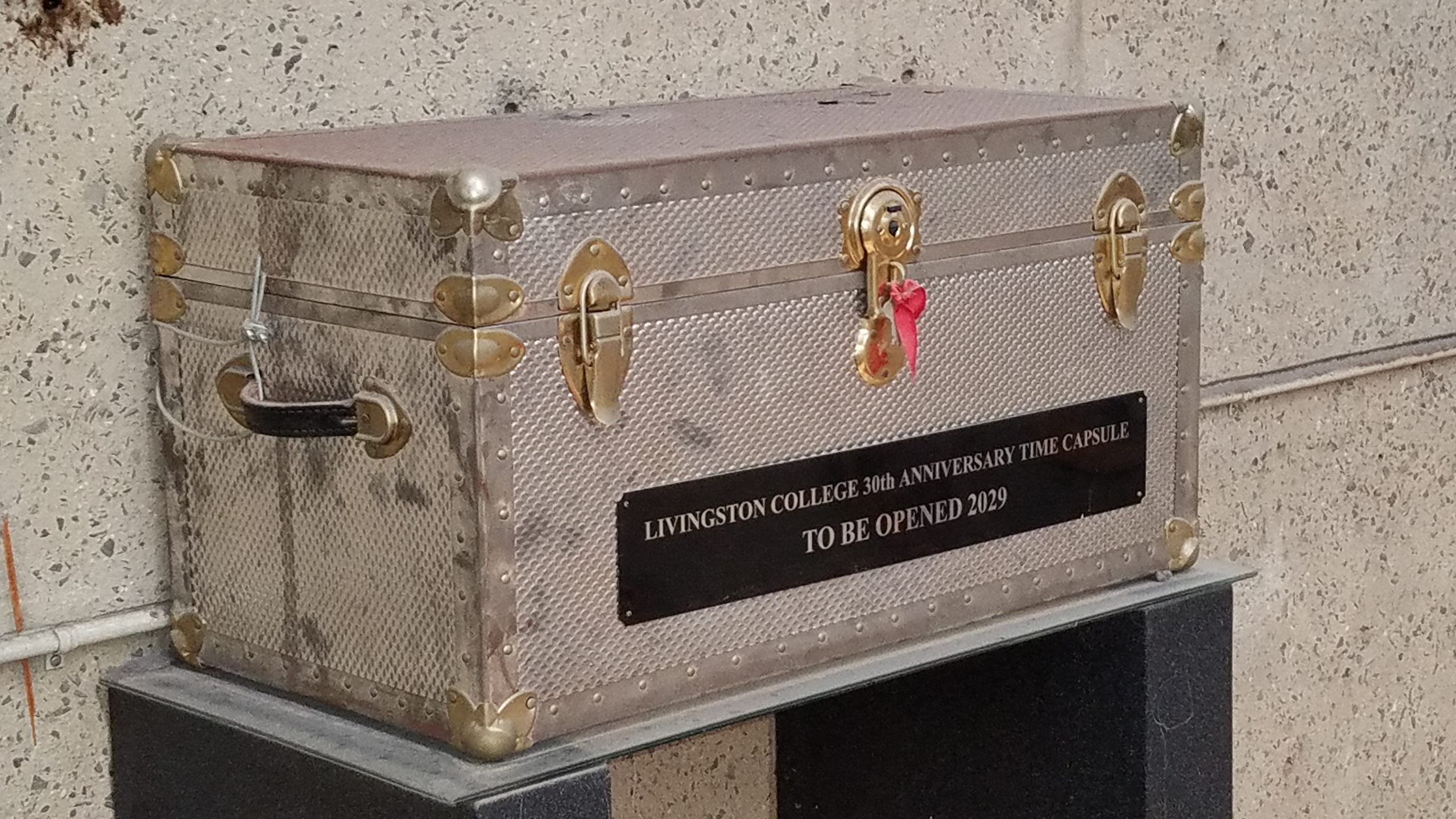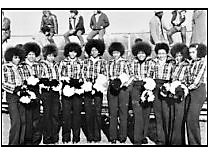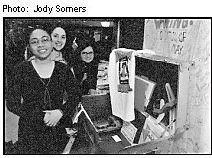Livingston College created a time capsule on the occasion of its 30th anniversary in 1999-2000, and closed the capsule on April 18, 2000. The capsule is on a shelf in the double-height Great Hall of Tillett Hall on Livingston Campus.



The time capsule project and its contents were described in an article in the Livingston Alumni Association’s newsletter of summer 2000 by Ruby Keise of the Rutgers News Service, as reprinted below. The time capsule is to be opened in 2029, the 60th anniversary of the opening of Livingston College.
Celebrating 30 Years
By Ruby Keise, Rutgers News Service
Faculty, staff and students at Livingston College wrapped up the celebration of the college’s 30th anniversary on April 18, by filling and closing a time capsule during a ceremony in The Great Hall in Tillett.
Among the items in the capsule are photographs of students dating back to the 1970s; an old term bill from 1969 indicating a tuition of $280 for the semester (Spring ‘00 tuition was $2,381); old student ID cards; and a 1973 recording by the Liberated Gospel Choir, a Livingston student group. The choir, which has continued to grow throughout the years, sang two selections for the capsule-closing ceremony.
Several personal items left by students were added to the capsule during the ceremony. Students also left messages written on archival-quality, acid-free postcards that were made available by the Time Capsule Committee, headed by students Michelle Massie, Melissa Carpini and Marcella DiBenedetto [Editor’s Note: pictured above].
“When Livingston opened its doors in 1969 with some 800 students, the university very much needed the social and intellectual jolt that Livingston was to supply,” stated Martin Gliserman, an associate professor of English and an early faculty member at Livingston, who was among the speakers at the ceremony. There have been great changes at Livingston over the years, he reflected, both in the physical plant — in the beginning there was “one elevator on campus that my 90-year-old father could beat any day” — and in academics.
Programs such as urban studies, Africana studies, anthropology, Puerto Rican studies, computer science, marketing, and women’s studies originated at Livingston and have all now been integrated into the
general university curriculum.
The closed capsule will be housed on a specially built shelf on the wall of The Great Hall. It will be opened in 30 years when the college celebrates its 60th anniversary.


